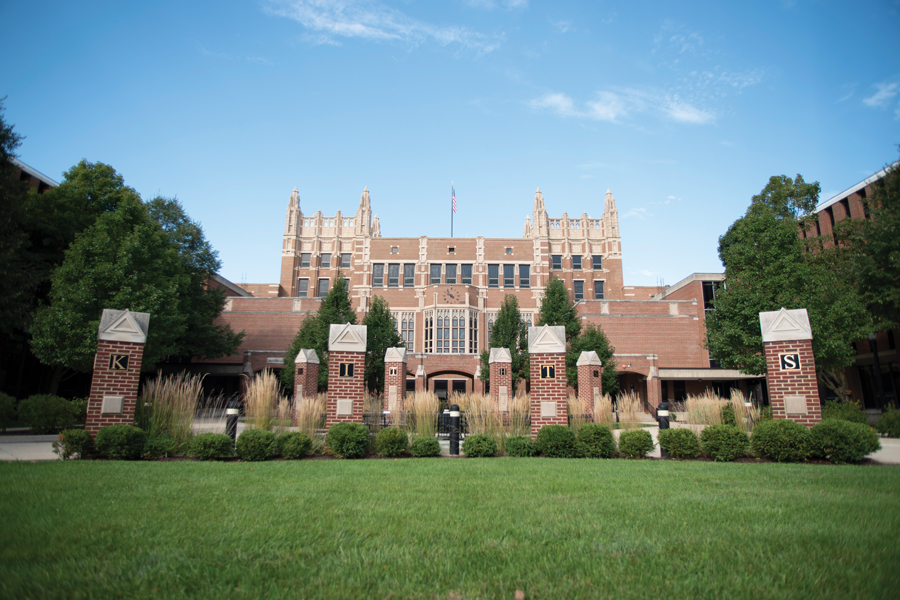D202 could lose state funding for 2020-2021 academic year
Daily file photo by Colin Boyle
Evanston Township High School. Illinois revenue shortfalls could impact ETHS/D202 funding for the 2020-2021 academic year.
May 11, 2020
Evanston Township High School/District 202 may receive a reduction in state funding for the 2020-2021 academic year, according to Mary Rodino, the district’s chief financial officer.
Classified as a Tier 4 school, meaning it is less in need of state resources, ETHS would be one of the first schools to lose state funding if the state failed to finance the base minimum amount of the State’s Evidence Based Funding, a program that provides more money to under-resourced schools. Illinois is currently facing revenue shortfalls because of the coronavirus pandemic.
Rodino said the $3 million the district receives annually from the state will still likely arrive on time this year. While the district’s financials for this year will likely go as planned, Rodino said next year’s budget will bring greater uncertainty. The Board will review a tentative budget for the 2020-2021 school year in June and approve the final budget in September.
“We’re keeping an eye on revenues and trying to figure out what could be at risk for next year, and also trying to be really conservative as we budget for next year,” Rodino said.
Rodino said local property tax revenues, D202’s largest source of revenue, are “pretty downturn resistant,” and should retain a value close to the amount the district budgeted.
At the same time, the pandemic has prevented the district from expanding the quantity of funds allocated to budget areas like academic department expenditures, D202 Superintendent Eric Witherspoon said.
The district has also absorbed extra pandemic-related expenses such as additional cleaning supplies and face masks, mobile hotspots, Instructional and Informational Technology expenses and additional summer curriculum planning and salaries. Some of the summer-related funding will be factored into next year’s budget.
Rodino said the district hopes to direct potential FEMA reimbursement and the $289,000 it received in the CARES Act funding to absorb these costs.
The district requested to redirect funds from Wildkit Academy Saturday support sessions, which can no longer be held, to career planning and development services with community partners.
“Our graduating students are trying to enter a workforce that is one like none of us have ever seen,” Rodino said.
Board member Gretchen Livingston said she was concerned the EBF funding would not materialize and D202 would have to return funds to the state. But Rodino said such a “clawback” would be a worst-case scenario, and D202’s rainy day fund would cushion the district.
Board President Patricia Savage-Williams said the district should examine worst-case scenarios for next year’s budget now.
“I recognize that we don’t know what’s around the corner, and it’s literally just around the corner,” Savage-Williams said. “Most of us anticipate that it’s going to not be good. It can’t be. Look at the economy, look at all the people in our community who are struggling and out of work.”
Board Vice President Monique Parsons also said it’s important to look at the possible outcomes for state funding and its impacts on next year’s budget. If the district opens and has to shut down again, Parsons said it would be detrimental to the district’s finances.
On Monday, The Board also moved to pay daily transportation providers, such as bus companies, 55 percent of normal costs for the remainder of the school year, according to a memo.
Email: delaneynelson2023@u.northwestern.edu
Twitter: @delaneygnelson



